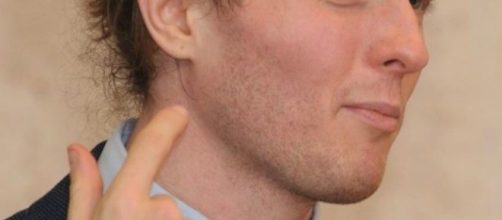Raffaele Sollecito has today been denied any compensation for the four years he spent in prison, one year on remand, and three years until the final Supreme Court Appeal decision in March 2015.
The problem is, although acquitted, it was on the grounds of 'insufficient evidence' and not a straightforward exoneration.
After having to wait six months for the written reasons, in Sept 2015, Sollecito then had the way clear to put in a claim for compensation, which Italian law allows for.
Wrongful imprisonment
However, the statute that allows compensation for wrongful imprisonment specifically excludes defendants who lie to the police, described as 'gross misconduct'.
In other words, the Florence Appeal Court in January this year dismissed Sollecito's claim for this reason. It deemed that Sollecito had committed 'willful misconduct' or 'at the very least, gravely negligent or imprudent.'
It found it 'implausible' that he could not account for the movements of his then-girlfriend, Amanda Knox. It states that both he and Amanda Knox lied many times and that it was a 'disputable fact of absolute certainty' that Knox was at the murder scene 'when the young Meredith Kercher was murdered'.
Sollecito through his lawyer, Giulia Bongiorno immediately appealed to the Supreme Court, citing the fact of Rudy Guede's shoeprint being mistaken for his. However, this was never the point of law for which Sollecito was refused his demand for the maximum €517,000 compensation.
Court rejects appeal
So, today, the Supreme Court rejected the appeal and the matter ends there.
It means the written reasons of the Florence Court of 10 Feb 2017, stands. It is damning and scathing of the pair's behaviour throughout the investigation.
In effect, it blocks any compensation claim Amanda Knox might have had her eye on from Italy.
Will go to European Court of Human Rights
Sollecito's lawyer, Bongiorno has made a statement that he now plans to take it to the European Court of Human Rights. This would not be an appeal as the ECHR has no jurisdiction to overturn the verdict. Rather, it can make an award should it decide there was unfairness in the procedure. The average award of the ECHR is circa €3,500-: a far cry from the €517K Sollecito was demanding.
Nonetheless, there is still the suit outstanding Sollecito took out against several judges and officials recently for damages.
He and his ghostwriter, Andrew Gumbel, are also currently being tried for the alleged defamations in Gumbel's book Honor Bound, stayed until the compensation hearing was out of the way.
Word on the street is that he is now keen to 'settle' with prosecutor Mignini, who brought the complaint.


